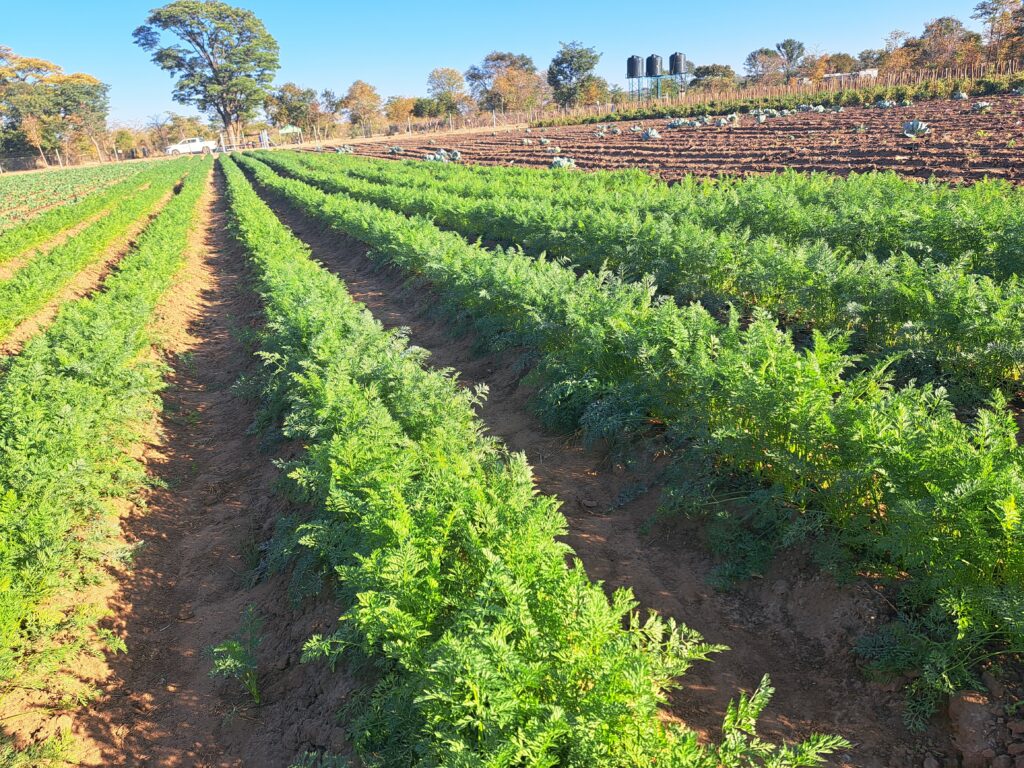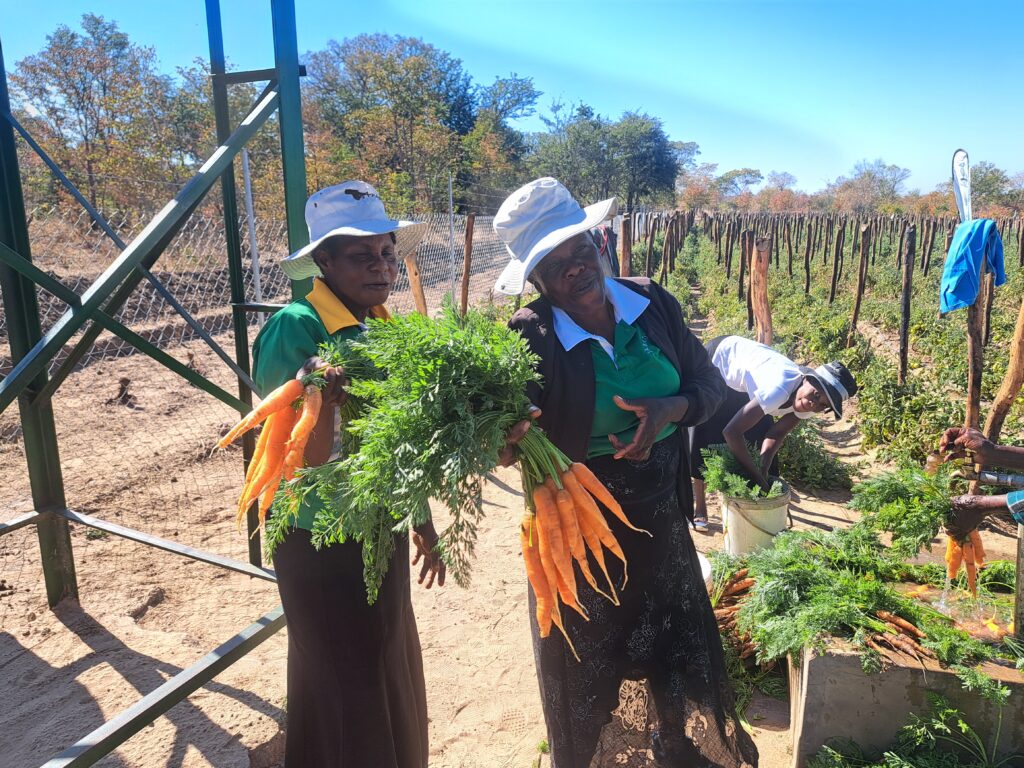
Amid the tall teak and mahogany trees growing from the powdery Kalahari sands, Lucy Moyo makes her way to the east of her grass thatched home. A hundred metres later, the Kalahari sands and the hardwoods give way to a little clump of Mopane trees. Here the soil is a mixture of the Kalahari and clay soils and the fenced portion with different vegetables, flourishing and green in the middle of the grey, bare trees, devoid of their leaves is difficult to ignore.
Two men and a woman are operating the drip system in the garden. This is Jabatshaba Village Business Unit, 50 km north-west of Lupane, the provincial capital of Matabelend North. The multi-purpose water point, popularly known as a Village Business Unit (VBU) was established for the rural community by the Smallholder Agriculture Cluster Project (SACP) co- financed by the Government of Zimbabwe, the International Fund for Agricultural Development (IFAD) and the OPEC Fund for International Development (OFID).
Jabatshaba is one of the seven VBUs established by the project in the Lupane district, which falls in Agro-ecological Region 5 characterised by very hot temperatures, erratic rains and worsened by the predominantly Kalahari sands in the area. According to Lucy Moyo, the Chairlady for the Jabatshaba Village Business Unit, “For us this garden brings hope for better incomes which will enable us to send our children to schools. As women, we also hope that this garden will enable us to earn income and stop relying entirely on our husbands”
The beneficiaries have started realizing an income from the village business unit. She said, ” After planting the first cycle of crops which included cabbages, tomatoes as well as carrots and rape which formed the nutrition corner, we realised realized US$6 431.00.
We also harvested 636 buckets of tomatoes which we sold for prices ranging from US$4 to US$7 depending on the tomato sizes and quality and made a total income of US$3 672.00.Out of the 3 332 heads of cabbages that we sold, we made an income of US$2559.”
The garden already has a plan for maintenance which constitutes 10% of their income. This will be used for any repairs to both the water point and the garden.
The garden has not only provided income but has also improved nutrition in the village. The farmers harvested and shared 120 cabbages among the 30 households for consumption. The farmers also consumed 120 buckets of tomatoes which were shared among the 30 beneficiary households. In addition to the crops in the commercial plot, the farmers have a nutrition corner where they cultivated carrots and leafy green vegetables rape which are shared among households on a weekly basis. The nutrition corner provides more than enough for the farmers who are selling the surplus to nearby boarding schools, Mabhikwa and Fatima High Schools.
For the community the intervention has also brought other benefits to the community where water is scarce, especially during the dry months after the rainy season. The intervention has made it easier and faster to access water for the community.
Lucy Moyo adds that, “Before this intervention, it was very hard to operate this borehole. It had 16 pipes and was very heavy. Women were forced to pump as groups as one person was not able to operate the borehole. Now, we just open the taps and fetch water, there are less conflicts over water and watering livestock. Before SACP, community members spent a lot of time at the water point, and there were endless arguments over who came to the borehole first. This water point has made it easier for all community members including the elderly and PWDs to easily access water.

